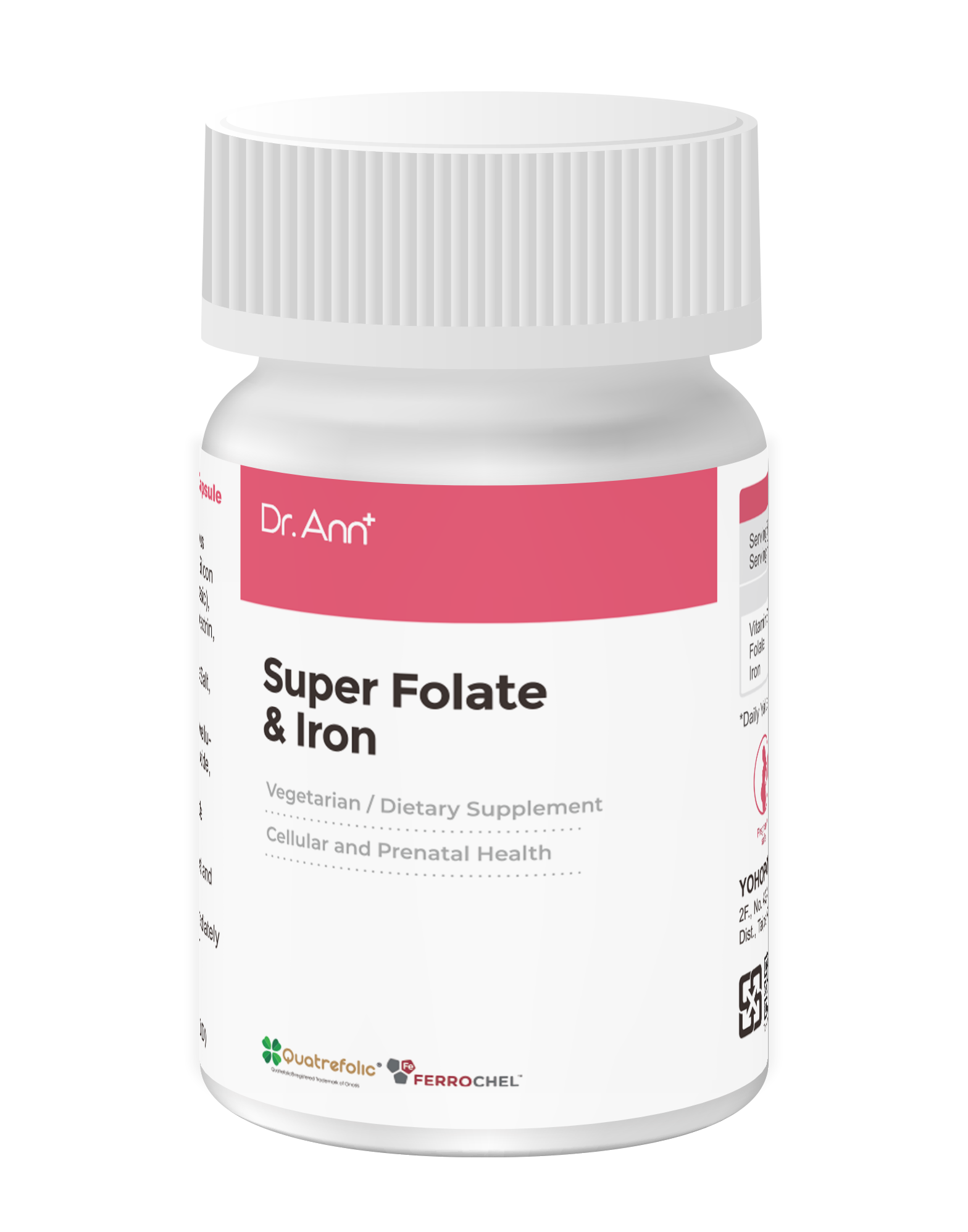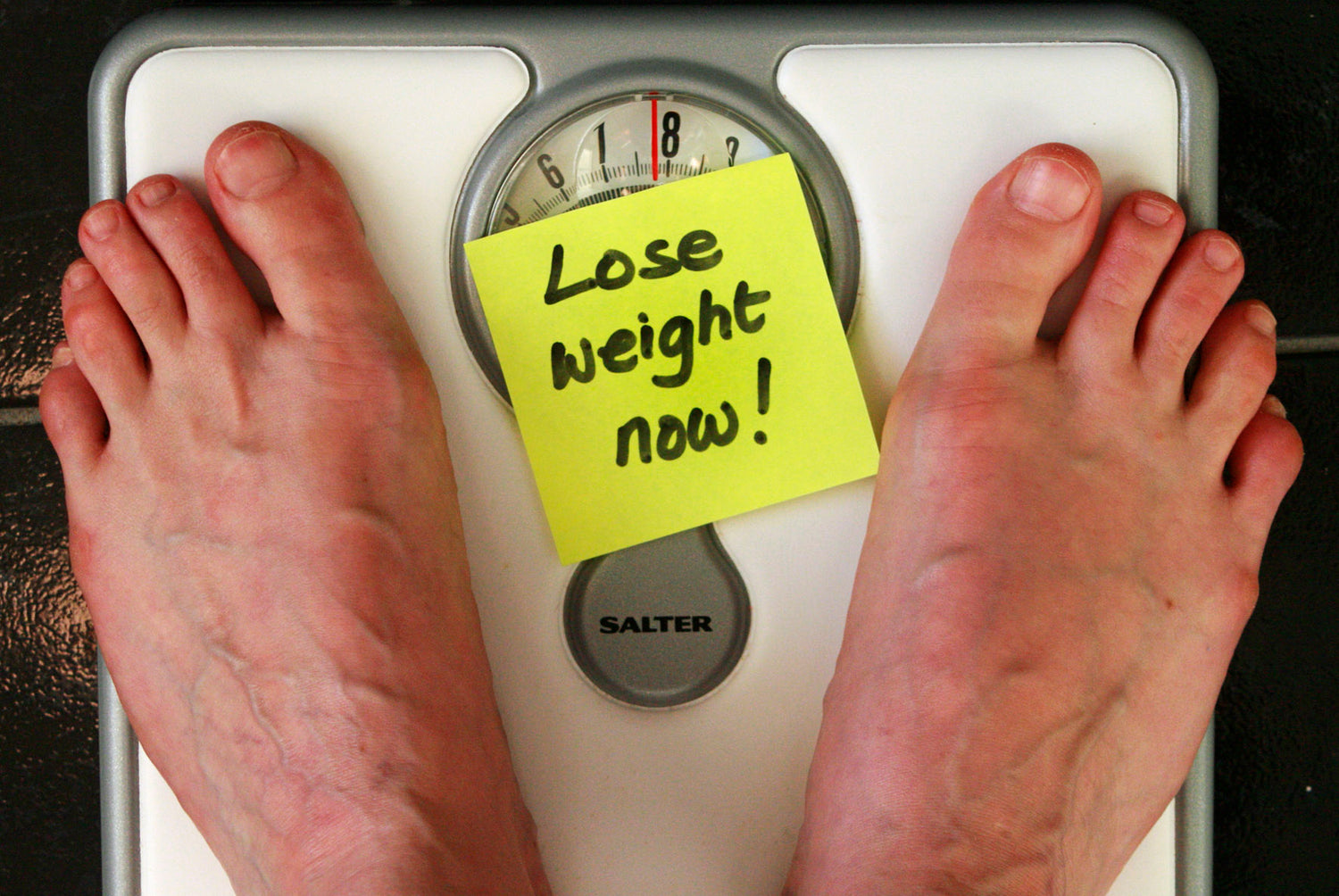Folate, a crucial B vitamin, plays a vital role in our health. Many Malaysians may not realize its importance or the risks of folate deficiency. As our lifestyles and diets change, understanding this essential nutrient becomes more critical. Folate deficiency can affect people of all ages, from expecting mothers to the elderly. Let's explore the causes, symptoms, and prevention of folate deficiency in Malaysia.
What is Folate?
Folate is a B-vitamin that's essential for our health. It's found naturally in many foods, while folic acid is the synthetic form used in supplements and fortified foods.
Roles of Folate in the Body:
- DNA synthesis: Folate helps create new cells, important for skin, hair, and digestion.
- Red blood cell production: It's crucial for making healthy red blood cells that carry oxygen in our body.
- Fetal development: For pregnant women, folate is vital for the baby's brain and spinal cord development.
Causes of Folate Deficiency
Several factors can lead to folate deficiency in Malaysia:
Dietary factors:
- Not eating enough folate-rich foods
- Overcooking foods, which reduces folate content
Medical conditions:
- Digestive system diseases that affect nutrient absorption
- Hemolytic anemia, which increases the need for folate
Lifestyle factors:
- Excessive alcohol consumption
- Pregnancy, which increases folate needs
Medications:
- Some drugs can interfere with folate absorption
Genetic factors:
- Some people have a genetic variation affecting folate processing
Symptoms of Folate Deficiency
Recognizing these signs can help detect folate deficiency early:
General symptoms:
- Fatigue and weakness
- Shortness of breath (sesak nafas)
- Irritability and mood changes
Oral symptoms:
- Tender, red tongue (lidah merah dan sensitif)
- Mouth sores or ulcers (ulser mulut)
Neurological symptoms:
- Memory loss and difficulty concentrating
- Confusion and problems with judgment
Other symptoms:
- Pale skin (kulit pucat)
- Dizziness (pening)
- Gastrointestinal issues
If you experience these symptoms persistently, consult a healthcare professional. Visit your local klinik kesihatan or hospital for proper diagnosis and treatment.
Complications of Folate Deficiency
If left untreated, folate deficiency can lead to serious health issues:
Anemia:
- Megaloblastic anemia, causing fatigue, shortness of breath, and pale skin
- Reduced oxygen transport in the body
Pregnancy-related complications:
- Neural tube defects in babies (spina bifida, anencephaly)
- Increased risk of premature birth and low birth weight
Long-term health risks:
- Cardiovascular disease
- Certain cancers
- Cognitive decline and dementia
Diagnosis of Folate Deficiency
To diagnose folate deficiency, doctors typically:
- Take a medical history and assess symptoms
- Perform a physical examination
- Order blood tests: Serum folate test, Red blood cell (RBC) folate test, Complete Blood Count (CBC), Homocysteine test, Vitamin B12 test
In rare cases, additional procedures like bone marrow biopsy or genetic testing may be recommended.
Treatment and Management of Folate Deficiency
Folate deficiency can be effectively treated and managed:
Folic acid supplementation:
- Typical dosage: 400-800 micrograms (mcg) daily for most adults
- Higher dosages may be prescribed in severe cases or for pregnant women
- Treatment usually lasts several months
Dietary changes:
- Increase intake of folate-rich foods like bayam (spinach), kangkung (water spinach), kacang panjang (long beans), and fruits
- Proper food preparation to preserve folate content
Lifestyle modifications:
- Limit alcohol consumption
- Quit smoking
- Manage chronic conditions
Monitoring and follow-up:
- Regular blood tests
- Nutritional counseling
- Pregnancy planning
Prevention of Folate Deficiency
Preventing folate deficiency is crucial for maintaining overall health:
Dietary recommendations:
Eat foods naturally high in folate:
- Ulam: Traditional Malay raw vegetable salads
- Sayur-sayuran: Leafy greens like bayam and kangkung
- Kacang-kacangan: Legumes such as kacang panjang and kacang dhal
- Buah-buahan: Fruits like pisang (banana) and betik (papaya)
- Hati ayam: Chicken liver, high in folate
Choose fortified foods with folic acid:
- Roti mil penuh (whole grain bread)
- Bijirin sarapan (breakfast cereals)
- Some brands of beras (rice)
for more read: Top 15 Folic Acid Foods: Boost Your Health with Foods Rich in Folate
Recommended daily intake of folate:
- Adults: 400 mcg per day
- Pregnant women: 600 mcg per day
- Breastfeeding women: 500 mcg per day
Lifestyle modifications:
- Limit alcohol consumption
- Use proper cooking methods to preserve folate
- Avoid overcooking foods
Supplementation for high-risk groups:
- Pregnant women and those planning pregnancy
- People with certain medical conditions
- Vegetarians and vegans
Regular health check-ups:
- Include folate level checks in routine screenings
- Attend regular prenatal check-ups for expectant mothers
Special Considerations
Some groups require special attention regarding folate deficiency:
Pregnant women:
- Higher folate needs (600 mcg daily)
- Crucial for preventing birth defects
- Cultural considerations for dietary restrictions
for more read: 3 Crucial Benefits of Folic Acid for Pregnancy You Can't Ignore
Elderly populations:
- Increased risk due to reduced absorption and medication interactions
- Important for cognitive health
- Tailored interventions needed
Vegetarians and vegans:
- Ensure adequate intake from plant-based sources
- Be aware of potential B12 deficiency masking folate deficiency
- Consider supplementation
Individuals with chronic diseases:
- Diabetes and cardiovascular disease may affect folate status
- Gastrointestinal disorders can impair folate absorption
Diverse ethnic groups:
- Consider different dietary patterns in Malay, Chinese, and Indian cuisines
- Be aware of potential genetic factors affecting folate metabolism
- Provide culturally competent healthcare and education
Conclusion
Folate deficiency is a significant health concern in Malaysia. By understanding its importance, recognizing symptoms, and taking preventive measures, we can improve our overall health. Let's embrace our rich food culture, stay informed about our nutritional needs, and work together as a community to ensure all Malaysians maintain optimal folate levels.
Remember these key points:
- Eat a balanced diet rich in folate-containing foods
- Consider supplementation if you're in a high-risk group
- Be aware of the symptoms and seek medical advice if concerned
- Attend regular health check-ups and include folate level checks
- Spread awareness about the importance of folate in your community
By focusing on folate intake, we can build a healthier future for Malaysia. Let's make folate deficiency a rare concern and optimal health the norm for all Malaysians.
Super Folic Acid + Iron Vegan-Friendly 400mg 60's
- Country of Origin: Taiwan
- Vegan: Yes
- Recommended Age: 12 years and above
- Best Time to Take: Can be taken before or after meals
- How to Use: Swallow capsules with water or open and mix with food
- Dosage: 1 capsule daily, do not exceed 1 capsule per day
References:
1. Kashif M. Khan; Ishwarlal Jialal .(2023). Folic Acid Deficiency






